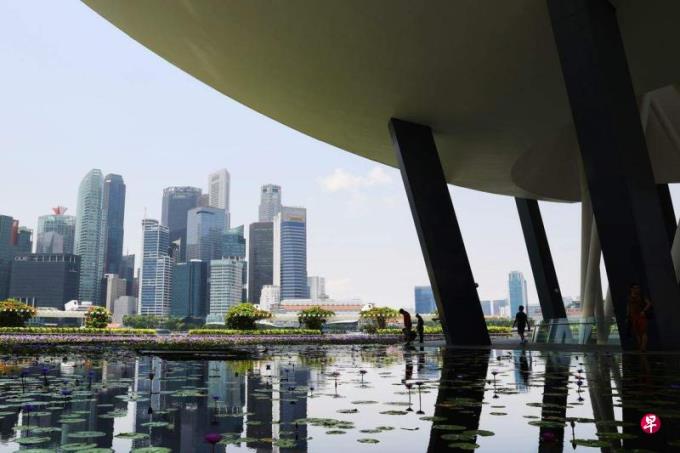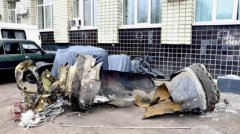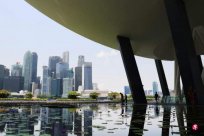
Huang Xuncai inherits an advanced economy with high efficiency and competitiveness, laying a solid foundation for his governance.Therefore, the new Prime Minister is bound to show his vision as soon as possible to establish leadership authority with political achievements.
The Singapore government leadership team is about to hand over, and Huang Xuncai will become the fourth prime minister.The People's Action Party has always cultivated the leadership team through cautious and serious internal mechanisms. At the same time, leaders were selected by successors to form a collective consensus.The transfer of power under this orderly layout is not only conducive to seamless integration, and at the same time to reduce elite division, but also means that policies and concepts will have a considerable degree of continuity and stability.
Compared with other Southeast Asian countries, Singapore and Malaysia have established a stable political party system since the 1960s, effectively organizing social elites in all strata, making the regime between the two places full of political toughness, and therefore have long -term governance experience.Because the Malaysian state -owned opposition party and the alliance in the wild, UMNO's unique position has been broken; but the advantages of the People's Action Party believe that it will still be maintained.
Singapore can be completed in an orderly manner, which is rare in this area.This helps the smooth transition of policies and routes, maintains the integration of elites in the party, avoid high -level division in the process of power inheritance, and ensure the inheritance and toughness of the political achievements of the ruling party.In the past, Umno could also help reaching political succession arrangements, and later failed due to the periodic political struggle in the party.Nowadays, Malaysia is in a period of unremitting political order, and power inheritance is more uncertain than ever.
In the past 60 years, the organizationalization of the ruling parties of the two countries is very high, but the path to the successive candidates has different pathways.The political succession echelon of other political parties in the UMNO and Malaysians is to obtain social recognition through public elections within the party.Dama.
The People's Action Party can be regarded as a cadre party. In fact, the party's organization and system are not huge. Sometimes they are hidden in the government system. It is also rare to open the party's elections and grass -roots mobilization to reduce social politics.Therefore, the party's political elite is often generated by top -down Zhenbu and observation. The advantage is that it is easy to create cohesion and collective consensus, and the disadvantage is that it is baptized without political experience in the party and abroad.
The existing succession model may have variables in the future
At present, Singapore's political elite selection model is a convention based on Lee Kuan Yew.He also did not arrange a successor. Instead, he was selected through a set of "institutional innovation" mechanism. He has the political characteristics of Oriental sages and do not have a tree in advanced economies.He did not adopt the party election procedures of modern Western parties, and learned the lessons of the failure of the designated successors in other countries.Judging from the performance of the two prime ministers of Wu Zongdong and Li Xianlong, Singapore is effective and successful through the selection of sages, supervision and assistants to cultivate successors in an orderly manner.However, with the increasingly enhanced competition in the island country, whether the existing succession model can be maintained will not be interrupted, and there may be more variables in the future.
In the 2020 election, Deputy Prime Minister Wang Ruijie's record was not good, which affected the party's succession deployment. Earlier, political star Yang Rongwen was defeated, and it directly impacted his political life.From this perspective, although Singapore is described as authoritarian democracy by some theists, election procedures and competition can still produce key significance.In the 2011 election, the votes of the People's Action Party declined, which drove the ruling party to review a number of people's livelihood and social policies after the election to respond to the information issued by voters.
In this regard, under the rule of Li Xianlong, Singaporea society has become more loose, open, and more dynamic and energetic over the past 20 years.Li Guangyao is the kind of powerful style of "even the injured tiger", but Li Xianlong may not be consistent with his father in some views.He soon discussed the opening of the casino publicly, and also allowed to change the language at any time when speaking in Congress to tolerate more social objections and increase the government's response ability.
Singapore's governance efficiency is still outstanding today, and it has enhanced social toughness, and it is far from Hong Kong in terms of competitive advantages.During the epidemic, Singapore proposed to coexist with the virus very early, and it was also a country that benefited from the recovery after the epidemic.Under his father's halo, Li Xianlong undoubtedly passed more smoothly than others, but he also proved by his ability and determination that he was indeed an outstanding leader of contemporary Asia.
Singapore's succession model can still continue when the People's Action Party still dominates the political situation, but the test may become more severe in the future.Theoretically, the existing election procedures can contribute to the rotation of political parties.In the 2011 presidential election, Chen Qingmu lost only 3.38 percentage points; in the next two to three Congress elections, the opposition party could not break the monopoly of two -thirds of the ruling party.Facts show that the collection of the selection system is no longer unique to the ruling party. If the opposition party won the four sets of constituencies, it is close to two -thirds of the majority.Singapore is a city -state country, and the political trend can sweep the whole island in the short term.Due to the relatively decisive decisive decisiveness of a single constituency in the selection system, as long as an additional 10 percentage points of votes are transferred, it is enough to change the overall situation.
The long -term ruling political parties must maintain toughness, and the party must be updated cyclical to respond to the emerging needs of society.Because young people have more opinions on the economy of the people's livelihood and look forward to more open and diverse social value, the next generation of leaders will face the opposition party that gradually understands the operation. It is expected that the public life in Singapore will be more political.However, most of the new government leaders come from government departments, military, and political federations, and may not have sufficient experience and judgment in political experience.Individuals have not undergone substantial political tests.
Administrative bureaucratic governance may meet the requirements of government governance, but in the environmental environment, national leaders also need sensitive political thinking and temperament.The new generation of leaders has a complete process and familiar with the system, but it is necessary to keep more political enthusiasm.According to Wu Zuodong's memoirs, he was questioned by the party in the party that was lacking in political enthusiasm. If he regarded politics as a national task, he might have to double the operation in the competition of the increasingly political party.
Huang Xuncai inherits an advanced economy with high efficiency and competitiveness, laying a solid foundation for his governance, but in Singapore's flexible authoritarian system, he also attaches great importance to the wiseness and prestige of the leader.The new generation of successive echelons are formed after experiencing coaches and tossing. Therefore, the new Prime Minister is bound to show his vision as soon as possible, respond to the rapid changes in society, strengthen the interaction of grass -roots organizations, maintain strict system operations, and establish leadership authority with political achievements.
The author is director of the Malaysian Chinese News Agency Research Center




